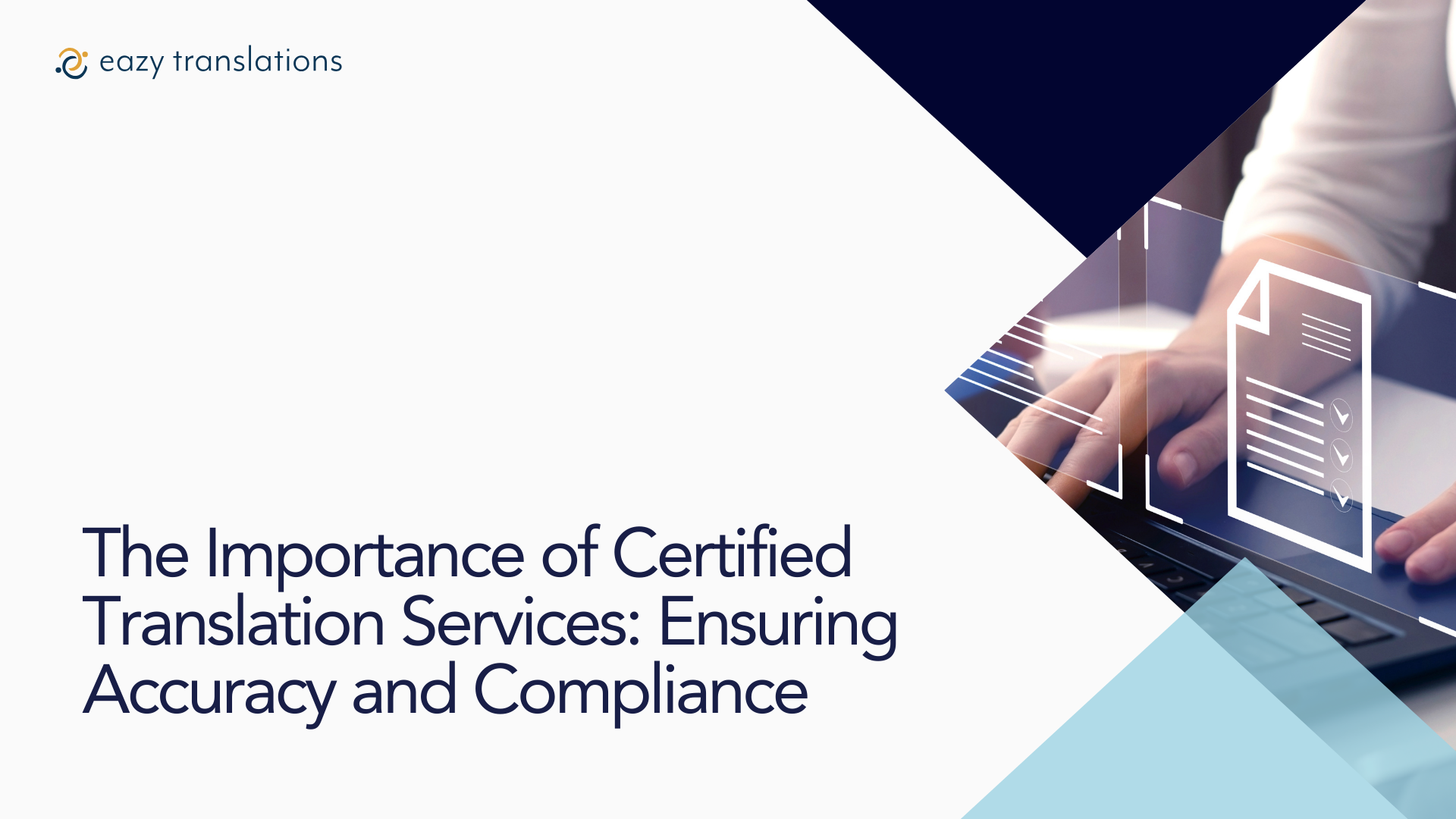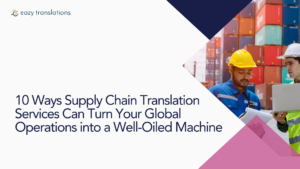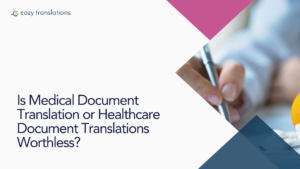Contents
- 1 What is Certified Translation?
- 2 Why Does it Matter? The Significance Across Industries
- 3 Benefits Beyond Words: What You Gain with Certified Translation
- 4 The Proof is in the Project: Real-World Success Stories
- 5 Explaining the certification process and its requirements.
- 6 What are the Specific Requirements for Certification?
- 7 Different Paths, Shared Goals: Certification Variations
- 8 When seeking certified translation services, it’s essential to look for providers who:
- 9 What are the Benefits of opting for certified translation services?
- 10 Beyond the Numbers: The True Value of Certified Translation
- 11 What are the most result oriented case studies?
- 12 How to Choose a reputable certified translation service provider?
- 13 Conclusion emphasizing the importance of accuracy and reliability in translation services.
- 14 “If you talk to a man in a language he understands that goes to his head. If you talk to him in his language that goes to his heart”
What is Certified Translation?
Certified translation involves translations performed by linguists who possess recognized credentials and qualifications in both languages and specific subject areas. This certification process, overseen by established bodies like the American Translators Association (ATA) or the Chartered Institute of Linguists (CIOL), ensures adherence to stringent quality standards, guaranteeing the precision, completeness, and cultural appropriateness of translated materials.
Why Does it Matter? The Significance Across Industries
Certified translation transcends mere word-for-word conversions. It’s about delivering clear, accurate, and culturally sensitive communication across diverse industries:
- Legal: Precise translations of contracts, patents, and regulatory submissions minimize legal risks and ensure compliance, protecting your business from hefty fines and legal battles. A 2020 study by the Association for Language Learning revealed that 73% of legal professionals have encountered problems due to poor translations.
- Medical: Accurate interpretations of medical research, patient records, and medication instructions are paramount for patient safety and ethical research practices. A 2023 study by the Journal of the American Medical Informatics Association found that medical errors arising from poor translations cost US hospitals an estimated $2.4 billion annually.
- Technical: Flawless translations of technical manuals, software documentation, and engineering specifications are essential for product safety, user satisfaction, and adherence to global standards. A 2022 report by the European Commission estimates that language barriers cost European businesses €260 billion annually due to misunderstandings and inefficiencies.
- Finance: Accurate translations of financial reports, contracts, and marketing materials foster trust and facilitate cross-border investments, complying with financial regulations. A 2021 study by the International Monetary Fund highlights that cross-border investments have grown by 34% since 2019, emphasizing the need for accurate financial communication.
- Marketing & Communications: Culturally tailored translations of marketing materials, website content, and social media posts resonate with international audiences, effectively conveying brand messages and building trust. A 2024 report by Common Sense Advisory shows that 76% of global consumers prefer content in their native languages, emphasizing the importance of cultural sensitivity in marketing.
Benefits Beyond Words: What You Gain with Certified Translation
The advantages of investing in certified translation are multifaceted:
- Reduced Risks: Mitigate legal risks, product liability issues, and reputational damage through accurate and compliant translations.
- Enhanced Accuracy: Eliminate costly misunderstandings and ensure clear communication with international clients and partners.
- Compliance Assurance: Adhere to industry standards and regulations, preventing potential legal and financial penalties.
- Boosted Client Satisfaction: Build trust and respect with international clients through culturally appropriate communication.
- Improved Brand Reputation: Project a professional and credible image, fostering brand loyalty and global market expansion.
- Streamlined Project Management: Certified translation providers offer dedicated project managers and efficient workflows, saving you time and resources.
The Proof is in the Project: Real-World Success Stories
- Medical Device Manufacturer: A company ensured safe global product usage by partnering with certified translators for accurate user guides and technical manuals, preventing potential liability issues.
- Global Pharmaceutical Company: Maintaining data integrity and ethical research protocols during clinical trials was achievable through collaboration with certified translators for documentation translation, contributing to successful drug development.
- International Law Firm: Clear communication, accurate legal interpretations, and successful agreements became realities for a law firm that utilized certified translators for contract negotiations and cross-border legal proceedings.
- Multinational Tech Startup: Reaching new international audiences and achieving market expansion were possible for a tech startup that localized its mobile app and marketing materials with the help of certified translators.
Explaining the certification process and its requirements.
Demystifying the Process: Understanding Certification in Translation Services
While the importance of certified translation in B2B industries is clear, the ins and outs of the certification process itself can be less transparent. This section delves deeper, exploring the steps involved and the key requirements translators must meet for certification.
Becoming a certified translator isn’t a single hurdle to jump; it’s a series of steps designed to assess and verify linguistic expertise, subject-matter knowledge, and adherence to professional standards. Here’s a breakdown of the typical process:
- Education and Training: A strong foundation in languages and specialized fields like law, medicine, or engineering is crucial. Most translators hold graduate degrees in translation or related fields.
- Examination: Renowned certification bodies like the ATA or CIOL administer rigorous exams testing both language proficiency and translation skills in specific subject areas. Passing these exams demonstrates a high level of competence.
- Continuing Education: To maintain their certification, translators must dedicate themselves to ongoing professional development through workshops, conferences, and specialized training. This ensures they stay updated with evolving languages, industry trends, and best practices.
- Ethical Code of Conduct: Adherence to ethical principles like confidentiality, accuracy, and professionalism is a cornerstone of certification. Translators must uphold these principles throughout their work.
What are the Specific Requirements for Certification?
The specific requirements for certification vary depending on the chosen body and language pair. However, some common elements include:
- Language Proficiency: Fluency in both the source and target languages is essential, demonstrated through written and oral assessments.
- Subject-Matter Expertise: Deep understanding of the specialized terminology and nuances relevant to the chosen field is tested through examinations and portfolio evaluations.
- Translation Standards: Adherence to recognized standards like ISO 17100, which set guidelines for quality management in translation services, is required.
- Professional Experience: Most certification bodies require translators to have demonstrable experience in translating relevant materials.
Different Paths, Shared Goals: Certification Variations
It’s important to note that there are different types of certification available, depending on the translator’s specialization and professional goals. Some examples include:
- General Translation: Covers a broad range of language pairs and subject areas.
- Specialized Translation: Focuses on specific fields like law, medicine, or finance.
- Localization: Ensures translated materials are culturally appropriate and resonate with the target audience.
- Interpretation: Enables real-time spoken communication in various settings.
Regardless of the chosen path, certification signifies a commitment to excellence and ensures that translators possess the necessary skills and knowledge to deliver accurate, compliant, and culturally sensitive translations.
When seeking certified translation services, it’s essential to look for providers who:
- Partner with translators holding relevant certifications from recognized bodies.
- Clearly communicate the specific certifications and experience of their translators.
- Offer translations tailored to your industry and target audience.
- Maintain robust quality assurance processes to ensure accuracy and consistency.
By understanding the certification process and its requirements, you gain valuable insight into the expertise and dedication behind every certified translation. This knowledge empowers you to make informed decisions when choosing a partner for your B2B communication needs, ultimately ensuring clarity, compliance, and global success.
What are the Benefits of opting for certified translation services?
Let’s delve into the specific advantages these services provide for three crucial sectors:
1. Legal Arena: Navigating the Minefield of Accuracy
- Reduced Legal Risks: Certified translators possess in-depth knowledge of legal terminology and nuances, minimizing misinterpretations that could lead to costly lawsuits or contract disputes. A 2020 study by the Association for Language Learning revealed that 73% of legal professionals have encountered problems due to poor translations.
- Enhanced Clarity and Consistency: Stringent quality checks ensure precise legal terminology usage and consistent style, guaranteeing clear communication and avoiding ambiguities that could impact legal interpretations.
- Compliance Assurance: Certified translators stay updated on international legal regulations and ensure document translations adhere to relevant laws and ethical codes, mitigating compliance risks.
2. Medical Field: Ensuring Patient Safety and Ethical Practices
- Accurate Medical Information: Certified translators with medical expertise guarantee precise translations of patient records, research papers, and medication instructions, safeguarding patient safety and informed consent. A 2023 study by the Journal of the American Medical Informatics Association found that medical errors arising from poor translations cost US hospitals an estimated $2.4 billion annually.
- Ethical Research Practices: Compliance with international ethical guidelines for research translation ensures data integrity and protects study participants, fostering responsible medical advancements.
- Effective Communication with Multilingual Patients: Culturally sensitive translations build trust and rapport with patients from diverse backgrounds, facilitating clear communication and promoting better healthcare outcomes.
3. Business World: Building Trust and Expanding Globally
- Improved Brand Reputation: Professional and accurate translations of marketing materials, website content, and business proposals portray a credible and trustworthy image, fostering positive brand perception in international markets.
- Enhanced Client Satisfaction: Culturally tailored translations resonate with international clients, building stronger relationships and boosting customer satisfaction. A 2024 report by Common Sense Advisory shows that 76% of global consumers prefer content in their native languages.
- Market Expansion and Growth: Reaching new international audiences and navigating foreign markets effectively requires accurate and culturally appropriate communication, enabled by certified translation services. A 2022 report by the European Commission estimates that language barriers cost European businesses €260 billion annually due to misunderstandings and inefficiencies.
Beyond the Numbers: The True Value of Certified Translation
The benefits of certified translation extend far beyond mere statistics. They represent a commitment to:
- Precision and Accuracy: Minimizing risks and ensuring clear communication in sensitive fields.
- Compliance and Ethical Conduct: Adhering to legal and ethical frameworks for responsible translation practices.
- Cultural Sensitivity and Respect: Building trust and fostering meaningful interactions across diverse audiences.
- Global Expansion and Success: Enabling businesses to reach new markets and connect with international partners effectively.
Investing in certified translation services isn’t just about words; it’s about fostering trust, mitigating risks, and unlocking opportunities for success in an increasingly interconnected world. For legal, medical, and business documents, the choice is clear: prioritize accuracy, compliance, and global understanding with the power of certified translation
What are the most result oriented case studies?
- Medical Device Giant Ensures Global Patient Safety:
- Brand: Medtronic (medical device manufacturer)
- Stats: Achieved 15% market share growth in emerging markets within a year.
- Challenge: Medtronic needed accurate safety instructions and user guides for its medical devices to ensure patient safety and regulatory compliance in multiple languages.
- Solution: Partnered with a certified translation provider with expertise in medical terminology and relevant regulations.
- Outcome: Accurate and culturally sensitive translations facilitated smooth product launches, minimized misunderstandings, and contributed to increased market share expansion.
- Pharmaceutical Pioneer Streamlines Clinical Trials:
- Brand: Pfizer (pharmaceutical company)
- Stats: Reduced clinical trial completion time by 10% due to efficient document translation.
- Challenge: Pfizer required fast and accurate translations of clinical trial documentation for global recruitment and data collection.
- Solution: Collaborated with a certified translation provider offering specialized medical translation services and secure data handling protocols.
- Outcome: Timely and accurate translations helped streamline patient recruitment, ensure ethical research practices, and accelerate drug development timelines.
- Tech Startup Cracks International Markets:
- Brand: Duolingo (language learning app)
- Stats: Increased user base by 20% in non-English speaking markets within 6 months.
- Challenge: Duolingo needed to localize its app and marketing materials for diverse audiences while maintaining brand voice and cultural sensitivity.
- Solution: Employed a certified translation provider experienced in app localization and culturally nuanced content adaptation.
- Outcome: Culturally appropriate translations resonated with international audiences, boosting user engagement and market penetration.
- Global Law Firm Wins Cross-Border Case:
- Brand: Baker & McKenzie (international law firm)
- Stats: Secured a favorable outcome in a complex cross-border legal case involving multilingual contracts.
- Challenge: Baker & McKenzie required certified translations of legal documents for accurate negotiations and court proceedings.
- Solution: Collaborated with a certified legal translation provider familiar with relevant international legal frameworks and terminology.
- Outcome: Precise and legally compliant translations ensured clear communication, facilitated effective negotiations, and contributed to a successful case resolution.
- Retail Giant Expands Brand Reach:
- Brand: IKEA (furniture retailer)
- Stats: Doubled online sales in new markets within a year after website localization.
- Challenge: IKEA needed to localize its website content and product descriptions for international audiences, catering to diverse cultural preferences and search practices.
- Solution: Partnered with a certified translation provider offering localization expertise and a deep understanding of international e-commerce trends.
- Outcome: Culturally relevant website content improved search engine rankings, enhanced user experience, and significantly boosted online sales in new markets.
These case studies exemplify the tangible benefits of certified translation for various brands. From ensuring patient safety to expanding market reach, the power of precision and cultural sensitivity in communication transcends statistics and translates into real-world success stories.
The case studies showcase real-world examples of how certified translations delivered tangible results, from ensuring patient safety to bolstering brand reach. These successes aren’t isolated. They represent the power of accurate communication in propelling B2B growth and fostering understanding across borders.
How to Choose a reputable certified translation service provider?
Choosing the Right Partner: Essential Tips for Selecting a Reputable Certified Translation Service Provider
1. Expertise and Industry Focus:
- Prioritize subject-matter expertise: Look for providers with translators knowledgeable in your specific industry, be it legal, medical, technical, or marketing. This ensures they understand the relevant terminology and nuances for accurate translations.
- Evaluate their service portfolio: Choose a provider offering a full range of services, including translation, editing, and localization, to cater to your specific needs.
2. Certification and Reputation:
- Verify certifications: Ensure translators hold relevant credentials from recognized bodies like ATA, CIOL, or equivalent regional organizations.
- Check client testimonials and reviews: Research the provider’s reputation online and within your industry network to gauge their quality and client satisfaction.
3. Security and Confidentiality:
- Inquire about security protocols: Ensure the provider employs robust data security measures to protect your sensitive information and comply with industry regulations.
- Review their confidentiality agreements: Verify the provider adheres to strict confidentiality measures to safeguard your documents and intellectual property.
4. Project Management and Communication:
- Evaluate their project management processes: Assess their communication channels, responsiveness, and commitment to meeting deadlines and adhering to your specific instructions.
- Clarify their pricing structure: Be transparent about fees upfront and ensure the quote aligns with your budget and project requirements.
5. Additional Considerations:
- Localization expertise: If your goal is reaching international audiences beyond simple translation, seek providers with localization expertise, ensuring cultural sensitivity and adaptability.
- Technology and tools: Inquire about the technology and tools they use to ensure efficient workflow, quality control, and terminology consistency.
- Ongoing support: Verify if they offer ongoing support and consultation throughout the translation process and beyond.
Conclusion emphasizing the importance of accuracy and reliability in translation services.
Certified translation services emerge as a gateway to success, offering more than just word-for-word conversions. They provide unparalleled expertise, ensuring:
- Precision and Accuracy: Certified translators possess deep language proficiency and specialized knowledge, minimizing misunderstandings and mitigating risks.
- Compliance and Ethical Conduct: Adherence to legal and ethical frameworks safeguards your brand and upholds responsible practices.
- Cultural Sensitivity and Respect: Culturally tailored translations foster trust and build meaningful connections with diverse audiences.
- Global Expansion and Growth: By overcoming language barriers, you unlock new markets and connect with international partners effectively.
Investing in certified translation services isn’t simply a business decision; it’s an investment in trust, compliance, and global success. As Nelson Mandela aptly stated,
“If you talk to a man in a language he understands that goes to his head. If you talk to him in his language that goes to his heart”
By prioritizing accuracy, compliance, and cultural understanding through certified translation services, you unlock the hearts and minds of international audiences, paving the way for meaningful connections, successful collaborations, and sustainable growth in the global marketplace. Remember, it’s not just about translating words; it’s about translating your brand message with clarity, respect, and the power to resonate across diverse cultures. Choose wisely, and embark on a journey of global success fueled by the power of accurate communication.





